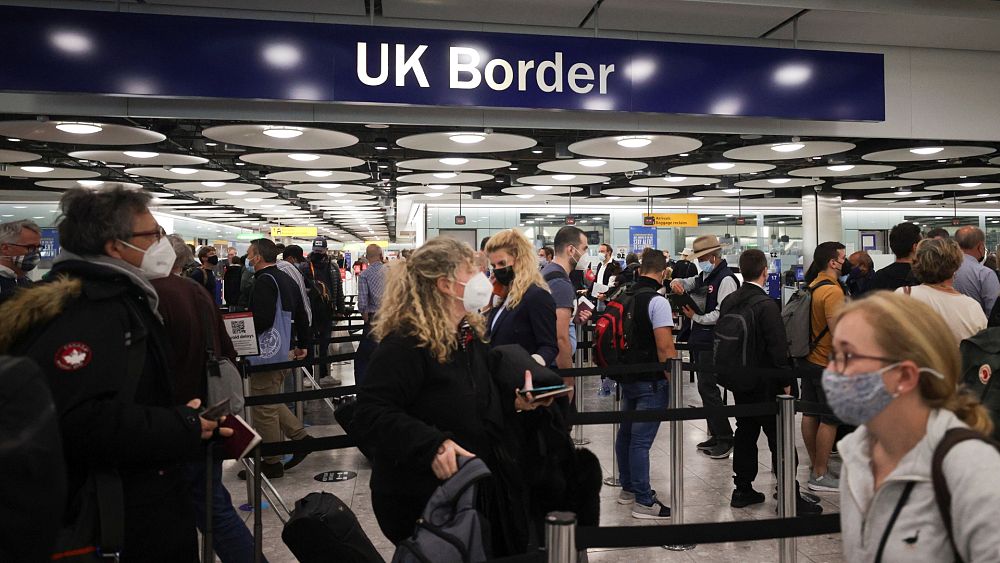UK Border Force strikes could be extended to ports including Dover within weeks, according to The Guardian.
Following eight days of strike action at airports over the Christmas period, Border Force staff are discussing walkouts at major ports in south-east England.
This could affect freight services in and out of the UK, as well as passport controls at Dover and Calais.
The initial industrial action - conducted by members of The Public and Commercial Services Union (PCS) union - saw more than 1,000 union members, including passport control workers, strike from 23-26 and 28-31 December over pay and conditions.
The walkouts reportedly caused minimal disruption but saw a 95 per cent drop in people being stopped at passport control, raising security concerns.
With the UK government refusing to budge on public sector pay, further strikes are increasingly likely.
Where in the UK could be the worst affected?
While the initial Border Force strikes primarily targeted UK airports, further strikes could focus on ports like Dover.
Last summer, holidaymakers faced hours-long delays at the Port of Dover because of slow border checks caused by staff shortages and new Brexit controls.
Since Britain left the European Union in 2020, UK travellers face stricter border checks when travelling to the continent. At Dover, they are performed on the English side of the channel by French staff.
It is not yet clear if the proposed strikes would affect other ports, such as Plymouth and Portsmouth, or the Channel Tunnel terminal in Folkestone. It is also unknown whether British Border Force staff who operate out of the French port of Calais and Eurostar terminal at Gare du Nord in Paris would be involved.
Eurostar staff were due to strike in December but called it off after receiving an improved pay offer.
How did Border Force strikes impact Christmas travel?
During the Christmas Border Force strikes, passport checks at Heathrow, Gatwick, Manchester, Glasgow, Cardiff and Birmingham were affected. Border Force staff at the port of Newhaven, East Sussex, were also included in the strikes.
In response, the government drafted in more than 800 military personnel and civil servants to staff entry gates.
Heathrow was challenged with recruiting and training up to 25,000 security-cleared staff before the festive period, a task the airport described as “a huge logistical challenge”. Passengers who were not eligible to use eGates faced longer wait times at Border Control.
At Manchester Airport, 200 new security staff are being recruited, but won't start work until April 2023.
More than 10,000 flights carrying up to 2 million passengers arrived at the affected airports during the strike period, according to aviation analytics company Cirium.
How might the government reduce disruption?
In response to the initial strikes, the government said they had undertaken "extensive planning" to minimise disruption.
This included bringing in a variety of public servants to fill the roles of Border Force officers. "Thousands of people, including civil servants and military personnel are ready to support Border Force over this period, many of whom are sacrificing their Christmases to ensure passenger’s travel plans are protected and they get to where they want to be this Christmas," the government said at the time.
But the head of the armed forces said that they should not be thought of as "spare capacity" for striking workers.
"We're busy and we're doing lots of things on behalf of the nation - we've got to focus on our primary role," chief of defence staff Admiral Sir Tony Radakin told the Sunday Telegraph.
Is there a danger of problems with passport checks?
Steve Dann has insisted that safety and security at borders will be "non-negotiable" during strike action.
However unions have warned that military personnel are not properly qualified to carry out these jobs. PCS said that Border Force members "are specialists in their fields and can't be replaced by people with just days of training."
Why are border force officials striking?
The strike is part of a larger coordinated action by thousands of civil servants. 100,000 PCS members in 214 government departments and other public bodies voted to take action
Members are demanding a 10 per cent pay rise, citing eye-watering inflation of 10.6 per cent.
Mark Serwotka, the PCS general secretary, said that the strike would cause "significant disruption" - but added that the cost of living crisis has left workers "desperate" with no choice but to strike.
"We have no option but to take industrial action because our members are using food banks and not able to switch on the heating right now," he said.
"The government can stop these strikes tomorrow if it puts money on the table."


